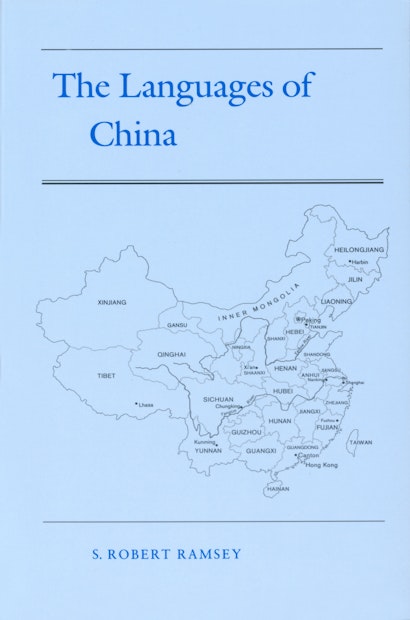In this accessible and informative book, S. Robert Ramsey lucidly explains what the Chinese language is—its social and geographical situation, its history, its range of dialects, the structure of the modern standard language, and the writing system. He goes on to describe the languages of China’s national minorities, showing how they interrelate with each other and with Chinese. Readers learn about the peoples who speak the languages of China, what China is like linguistically, and the cultural and historical settings of the country’s languages. For those who want more linguistic detail, Ramsey provides lists, maps, charts, and descriptions along with technical references in notes at the end of the book. Invaluable to general linguists and Sinologists alike, The Languages of China is an excellent introduction to Chinese and East Asian linguistics.
S. Robert Ramsey is professor of East Asian linguistics at the University of Maryland. His books include (with Ki-Moon Lee) A History of the Korean Language.
"In producing a book on China as a linguistic area, the ideal is a comprehensive and accurate account that places China's linguistic diversity in a meaningful historical, geographical, and social context. Ramsey has succeeded admirably in achieving this end."—Jerome L. Packard, Journal of Asian Studies
"A unique and brilliant work. . . . Ramsey integrates nearly all of the gains of modern research on the Chinese language and skillfully presents the results in a concise, interesting, and comprehensible manner."—Charles N. Li, American Anthropologist
"I find The Languages of China a pleasure in virtually all respects. It is extremely easy to read, full of useful information, and beautifully produced."—Victor H. Mair, Pacific Affairs
"[The Languages of China] is a volume that provides a feeling of depth while still being accessible to the general reader: I recommend it to anyone at all interested in Chinese history or comparative linguistics."—Danny Reviews
“In clear and simple style, The Languages of China assembles a mass of information not easily obtainable in one place elsewhere. It will appeal simultaneously to the general linguist, the Sinologist, and the educated layperson.”—James A. Matisoff, University of California, Berkeley

